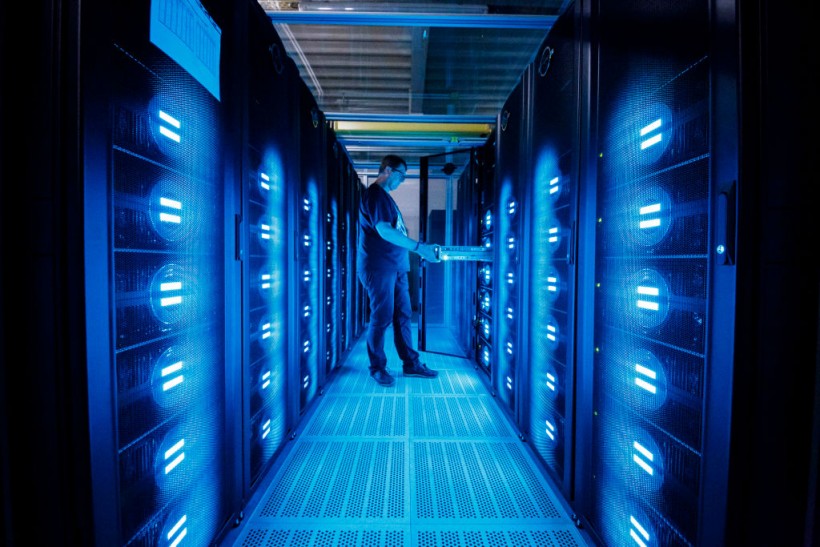Artificial intelligence's demand for more computing power, more data centers, and more electricity is currently "underestimated," says global cloud compute provider CoreWeave.
An underestimation that will eventually cause stress and restraints to the world's current power grid system.
The prediction comes from CoreWeave co-founder Brian Venturo. He claims the data center demands that CoreWeave receives daily are "absurd," with several requesting entire campuses.
According to the co-founder, supply networks that have traditionally supported highly physical businesses are not designed to handle the speed at which the market is moving.
He believes that with more "megacampuses," electricity grids will be stressed, and political disputes will increase.

(Photo by Morris MacMatzen/Getty Images) Data centers like this one power artificial intelligence but also contribute to global warming.
The surge in generative AI is driving demand for data centers, making Roseland, New Jersey-based CoreWeave one of the hottest IT businesses.
Venturo expressed concern about the infrastructure needed to meet the demand, saying, "It worries me." According to Venturo, the power requirement of AI is like a sprint that needs all the money in the world.
He adds that the difficulty of renovating outdated data centers is another factor driving up demand for new ones. Such expansions are not feasible with the current infrastructure powering the data centers.
He concludes that there are simply a lot of physical obstacles in this situation that are challenging to overcome quickly.
Read Also: AI Electricity Demand Could Make Execs Rely More on Fossil Fuel Power
OpenAI's AI Power Demand Solution
While Venturo's claims are certainly on the bleaker side, OpenAI CEO Sam Altman recognizes AI's power demand, recently claiming that a breakthrough in nuclear fusion is what the world needs to overcome it.
Altman has reportedly invested hundreds of millions of dollars in fusion. He has said in recent interviews that the technology of the future, considered the holy grail of renewable energy, may one day provide the enormous amounts of electricity needed for next-generation artificial intelligence.
Some experts claim that Altman's focus on a future energy breakthrough shows how unwilling the AI business is to confront the question of how it will meet AI's fast-growing energy consumption soon.
According to Vrije Universiteit Amsterdam researcher Alex de Vries, it is consistent with a widespread propensity for wishful thinking regarding climate action.
The scientist goes on to say that rather than hoping for the impossible, it would be far wiser to concentrate on what we now have and what we can achieve today.
AI Data Center Restriction
Consequently, AI data centers are currently restricted by governments worldwide due to their power demand. Recently, China, Singapore, and Ireland have restricted the construction of new data centers to meet stricter environmental regulations.
The largest threat to future projects is Ireland, which cloud computing companies created as a hub for server farms due to its low tax rate and convenient access to high-capacity subsea cables for worldwide internet traffic.
Restrictions on new data connections to the electricity grid in 2021 by the country's energy and water authority resulted in last year's denial of permits for new projects for data center companies Vantage, EdgeConneX, and Equinix.
Regulations in Germany and Loudoun County, Virginia, USA, have also put restrictions on permits for data centers that are close to residential areas or require them to recycle the waste heat they generate and input renewable energy into the grid.
Related Article: Microsoft's Brad Smith Claims AI as the 'Most Important Invention' in MWC 2024
(Photo: Tech Times)






